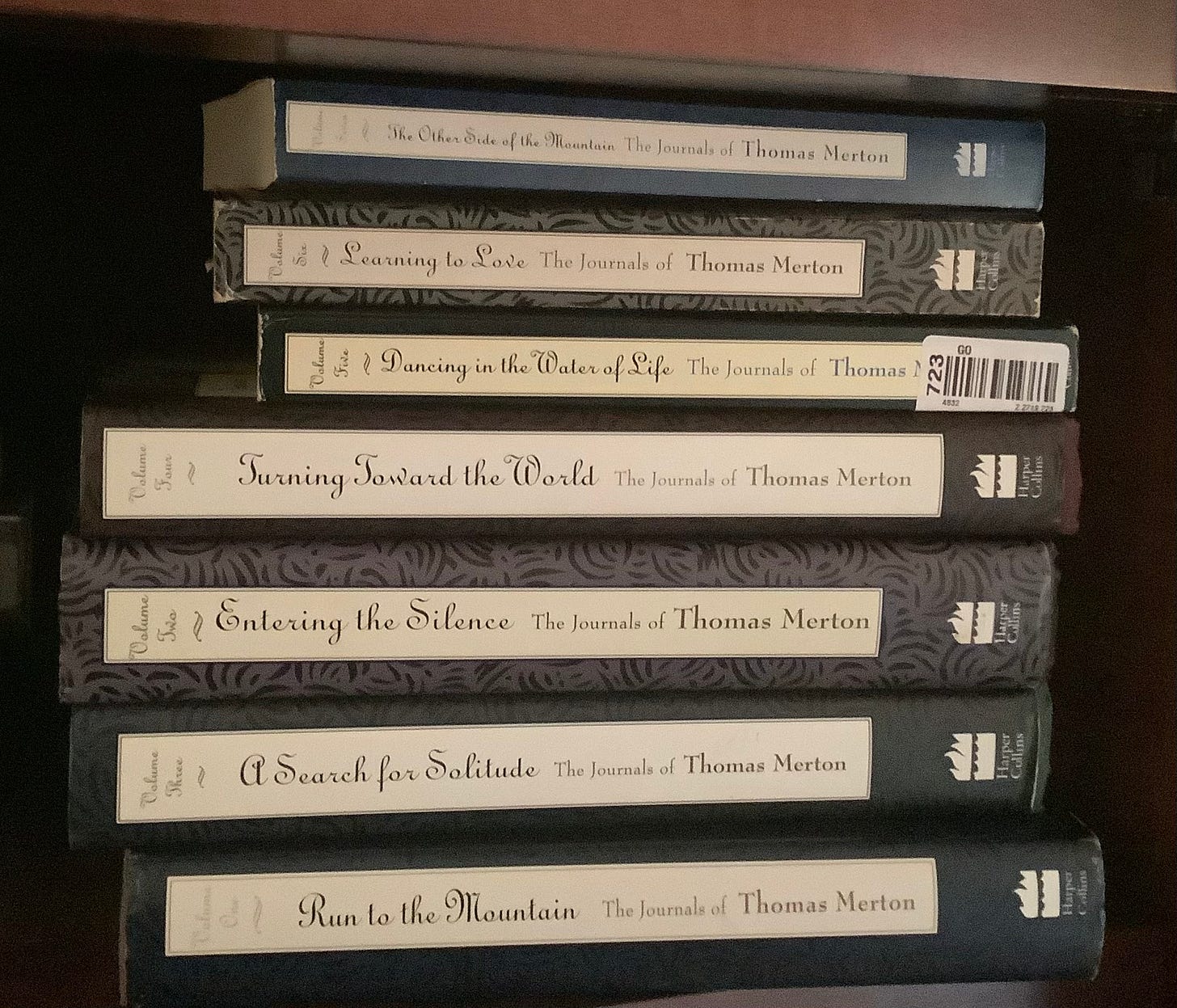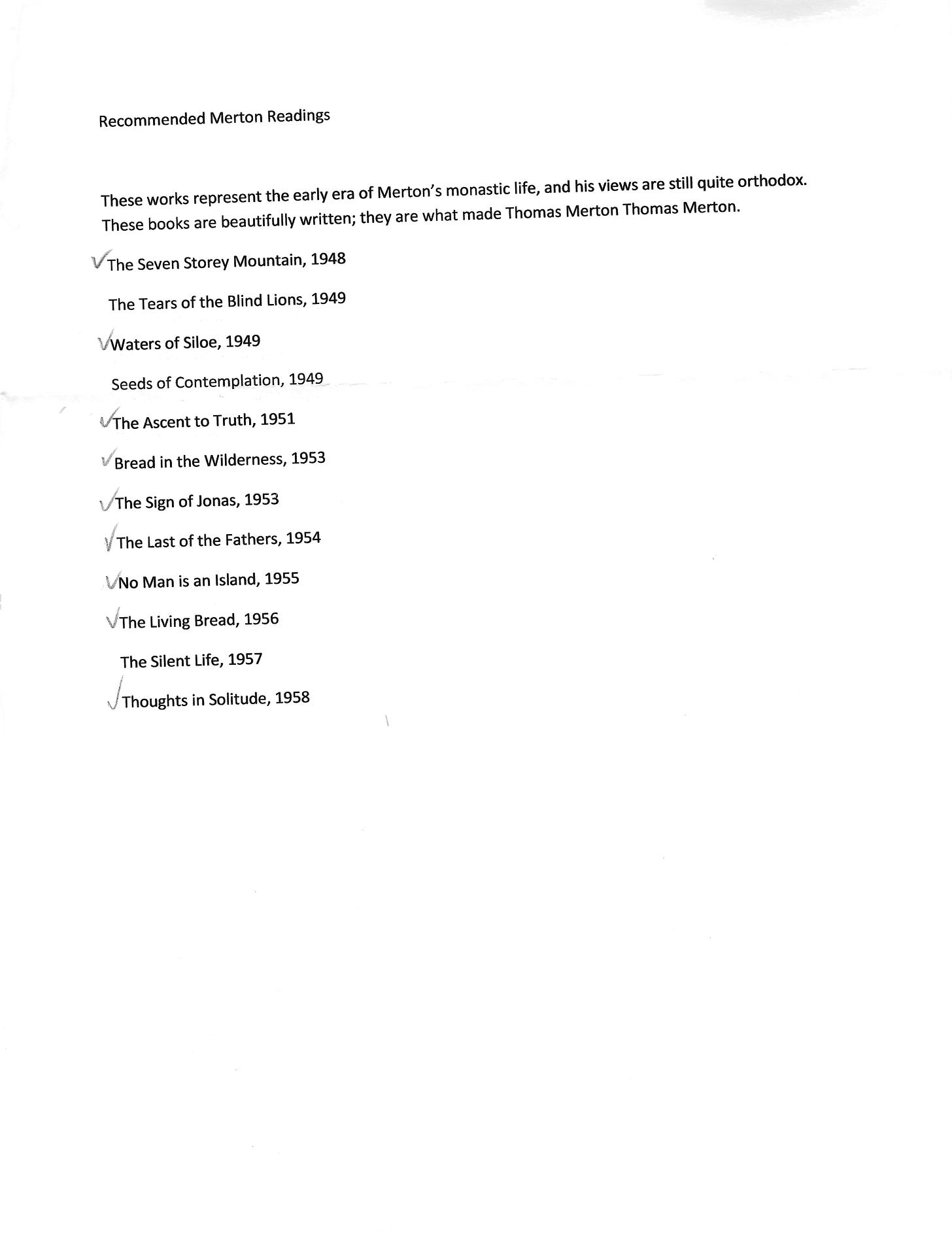I’m working my way through the journals (pictured above) of the Trappist monk Father M. Louis, OCSO, a.k.a. Thomas Merton. His seven journals cover the years 1939-1968 and total 2,868 pages. The research is part of a larger project focused on a particular aspect of the life of this popular and prolific Christian writer.
I purchased most of the volumes online from a used book website, which has always proven economical, but there is an ancillary benefit: they often come with a surprise tucked away between the pages by the previous owner — unique bookmarks, business cards, handwritten notes, receipts, etc.
In one acquisition I found the following typewritten note inside. I tend to agree with the assessment of the unknown critic.
If you haven’t read any of Merton, consider reading The Seven Storey Mountain first — even if it’s the only book of his you ever read.






I've spent the last ten years or so listening to the audio recordings of Merton's mostly Sunday sessions — him teaching the novices and young monks at Gethsemane. I have about 150 of them downloaded and listen to them repeatedly. I would love to embellish those nuggets with his journals. That's a great idea. Thank you. His books seem less personal when I read them. Listening to his teachings has been mesmerizing. The journals must carry the same weight of his personality as his voice.
I agree that his orthodoxy has been a surprise. Or maybe I'm reading that reaction into your statement. So much of the commentary before I began listening to his audio files positioned Merton as a radical, like Dorothy Day's misunderstood interpretation by secular or ideology-based folks. His reactions to the Vatican II developments were marvelous, full of shock and worry and hope.